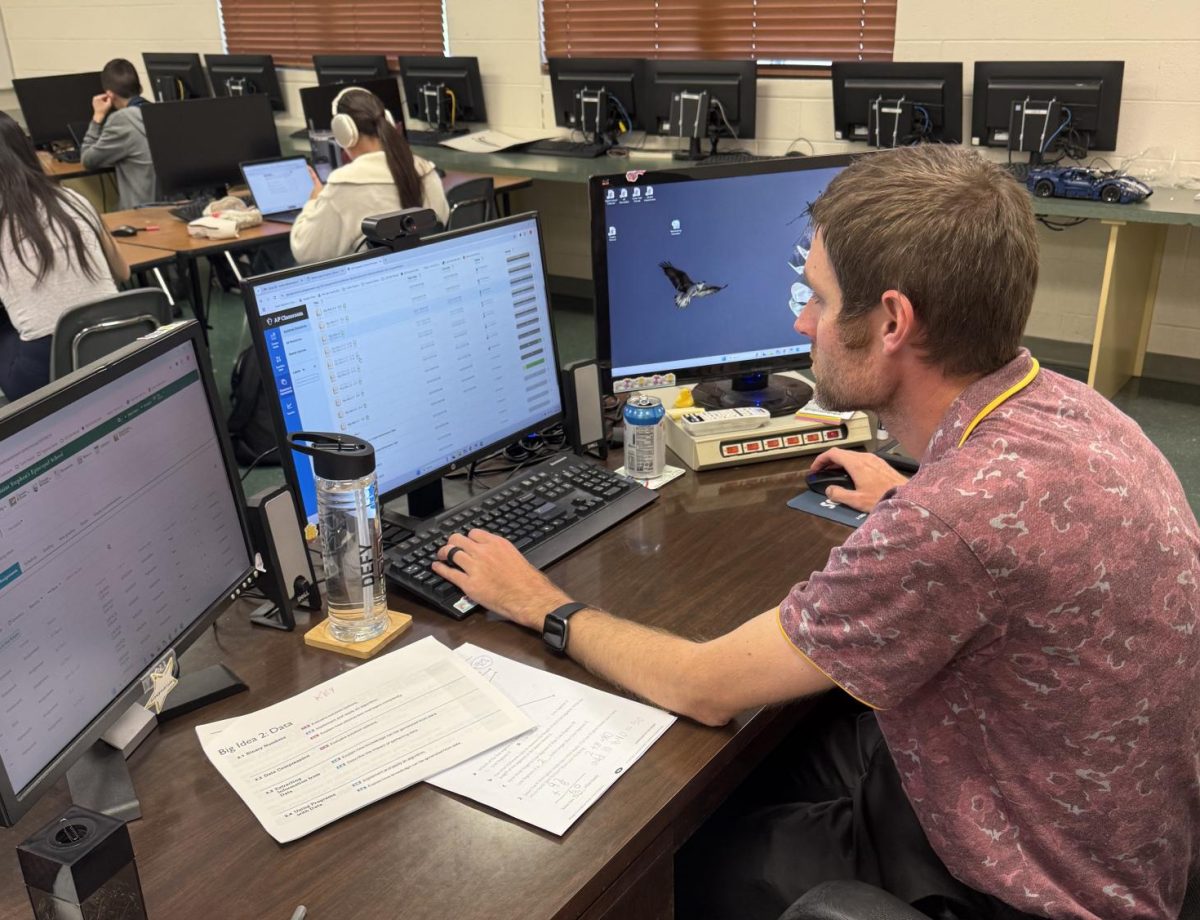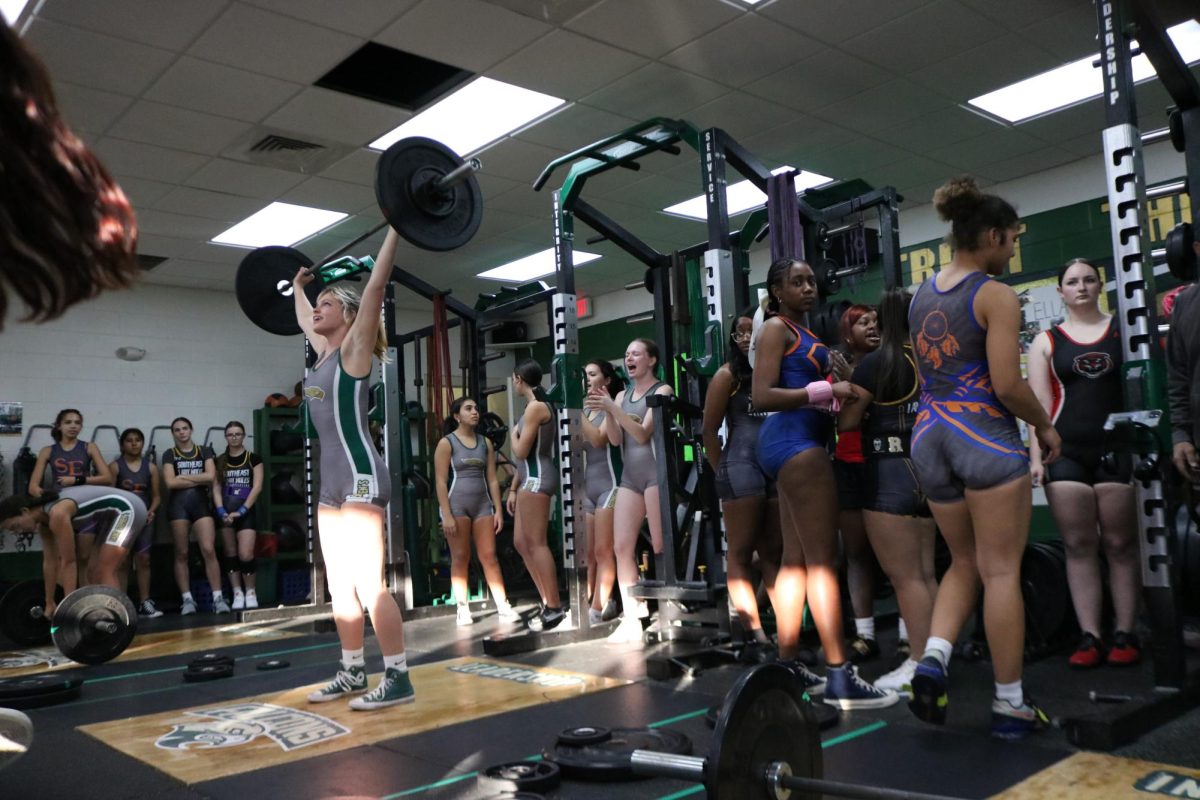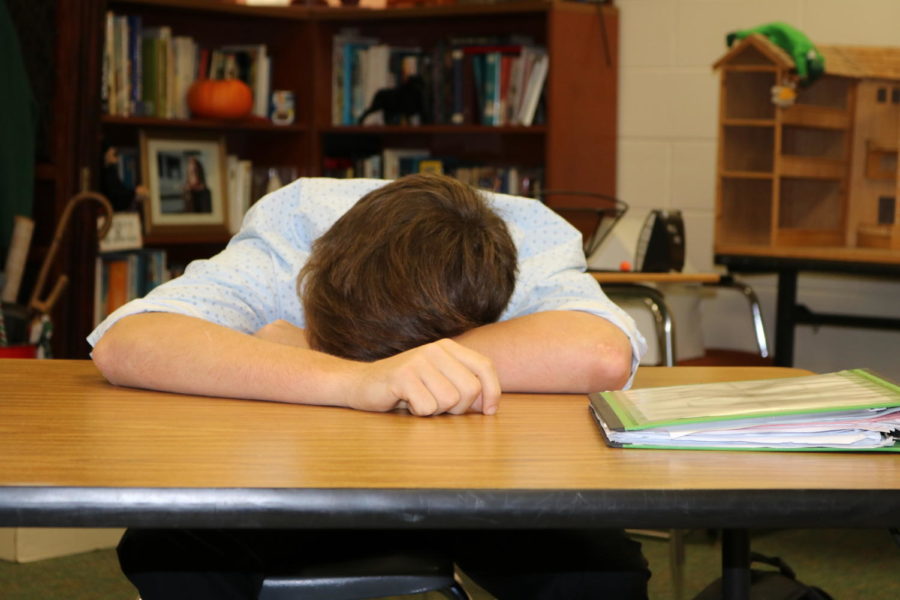Catching more z’s: How a later school start time affects SSES
With more and more schools across America opening their doors later in the day for the sake of teens’ health, is it a smart move for SSES to do the same?
Senior Dalton Francis (’19) manages to catch a quick snooze during his English seminar.
Over the holiday break, I came across an article that addresses an increasingly prevalent issue in our national school system: how early school start times and resulting sleep deprivation are proving to be detrimental to the overall well-being of teens across the country, and how shifting that time could drastically improve academic performance. Published on MindShift, an NPR news and podcast site dedicated to investigating the future of education, the article by Patti Neighmond focuses on how public high school students in Seattle were affected by the change in start time from 7:50 a.m. to 8:45 a.m. According to recent studies and experiments, they were able to focus more and perform significantly better on tests, and although researchers are still unsure as to whether the improvements are directly related to being able to sleep in longer, teachers say they can see a clear difference. That got me thinking: should Saint Stephen’s follow in Seattle’s footsteps?
Like Neighmond, former co-editor Kassandra Haakman’s (‘20) article discusses a largely scientific explanation on the ways in which a better, longer night’s sleep is beneficial to both mental and physical health, as she writes that constant sleep deprivation can lead to conditions like obesity and depression. With classes later in the day, students are able to be more alert and have an easier time paying attention.
All these benefits to a slight schedule shift can hardly be ignored and might seem like a win-win to students; with better grades and sounder sleep, what isn’t there to like about starting school thirty minutes later? However, when placed within the context of our whole campus and to the local community at large, it poses several problems, not necessarily in its effects on the performance of the student body but rather in its practicality.
It’s important to keep in mind that the studies in Seattle were conducted within the walls of public high schools, with changing school start times meant to cater specifically to teens’ “biological” bedtime; that is, their tendency to stay up later in the night than younger children or adults due to the prolonged production of melatonin in their brains (a hormone that induces tiredness). Because of this exclusivity, these new terms on a Pre-K through 12 schools like Saint Stephen’s would render them largely unnecessary for the majority of students in the community.
Assuming that the later start time would only take effect in the Upper School, scheduling extracurricular activities and campus-wide events would be, for lack of a better word, messy. Even Neighmond admits that adapting to the new schedule was “no easy feat,” and that only 17% of public high schools in the US have actually implemented it. Haakman reported that in regards to faculty concerns, division director Mr. Forrester believed that despite the potential academic improvements they would bring, the oncoming changes would “damage our school unity, as younger and older students would be going to school at different times.” As for after-school transportation, rolling out the buses and vans for the younger kids while Upper School classes are still in session could prove disruptive and distracting, especially if students are taking quizzes or tests.
Another issue with this change involves parents, or more specifically, their workdays. Most parents plan their day based on school hours, and those at Saint Stephen’s are no exception. For jobs with fairly strict schedules, such as those that revolve around set appointments (doctors, lawyers, etc.), it can be tough to adjust to a sudden change like this one. Driving kids to school later in the day could mean having to open for business even later and coming home at an unreasonable hour as a result.
So while other schools across the country are taking the plunge to overcome the setbacks of lingering early-morning grogginess, we need to ask ourselves where our priorities lie: do we sacrifice health for the sake of ease of schedule, or do we attempt to take on the plethora of new challenges a later school start time could bring in order to change our education for the better?
















































